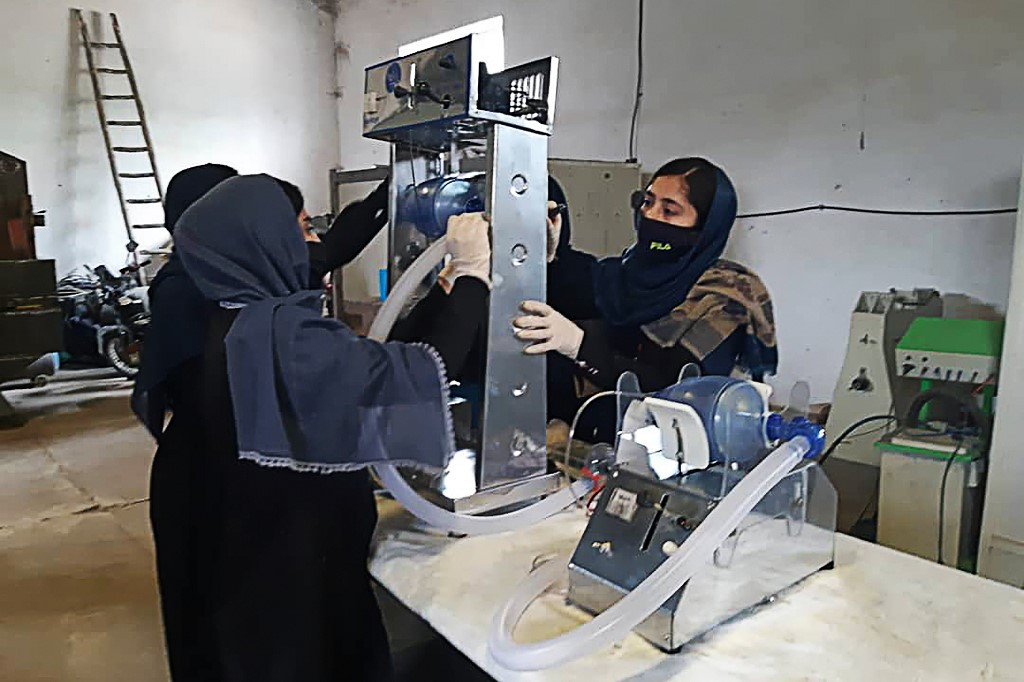Special Desk
Cars are parked in lockdown then what can be done of them. While the world would think over it some girls in Afganistan made ventilators out of car parts. Yes an Afghanistan’s all-girl robotics team has made affordable ventilators out of car parts.
The teenager girls, who made headlines back in 2017 also when they won a special award at an international competition in the US, this time turned their focus on coronavirus patients. Now they are racing against time to deliver ventilators by the end of May and this at a fraction of the market price. Afghan health ministry is supporting the effort of the girls.
Afghanistan, reeling from years of war, has a maximum 400 ventilators for a population of 38.9 million. Hence the need of this life support equipment is high. More than 7,650 coronavirus cases and 178 deaths have been reported but the authorities’ fear the situation could get worse and overwhelm an already fragile healthcare system in the country.

“Even if we can save one life with our effort it will be significant,” Nahid Rahimi, 17 told a news agency. “Afghan Dreamers” as the girls are popular come from the western province of Herat, where Afghanistan’s first case of Covid-19 was reported. It’s the nation’s hotspot for the pandemic because of its close proximity to Iran, the region’s epicentre of the outbreak.
The girls, are aged between 14 and 17. They have built a prototype using a motor from a used car and a chain drive from a bike. They say their ventilators will give temporary relief to patients with respiratory difficulty in emergency when standard ventilators are not available.
“I feel so proud to be part of a team that is trying to do something meaningful to support our doctors and nurses,” said team’s captain, Somaya Faruqi. Ventilators come for a hefty price of $30,000 (£24,000) to $50,000 (£40,700) on the global market means many poorer countries can’t afford them.
“We appreciate their initiative but like any other scientific research, there are phases for it, like discovery and development, pre-clinical research and when it’s offered in the market it’s analysed and approved,” Waheed Mayar, spokesperson for the health ministry said.
“Patient safety is our priority so we have to make sure the device is tested on animals in laboratories first before being tried on coronavirus patients.”
 Jubilee Post News & Views
Jubilee Post News & Views




